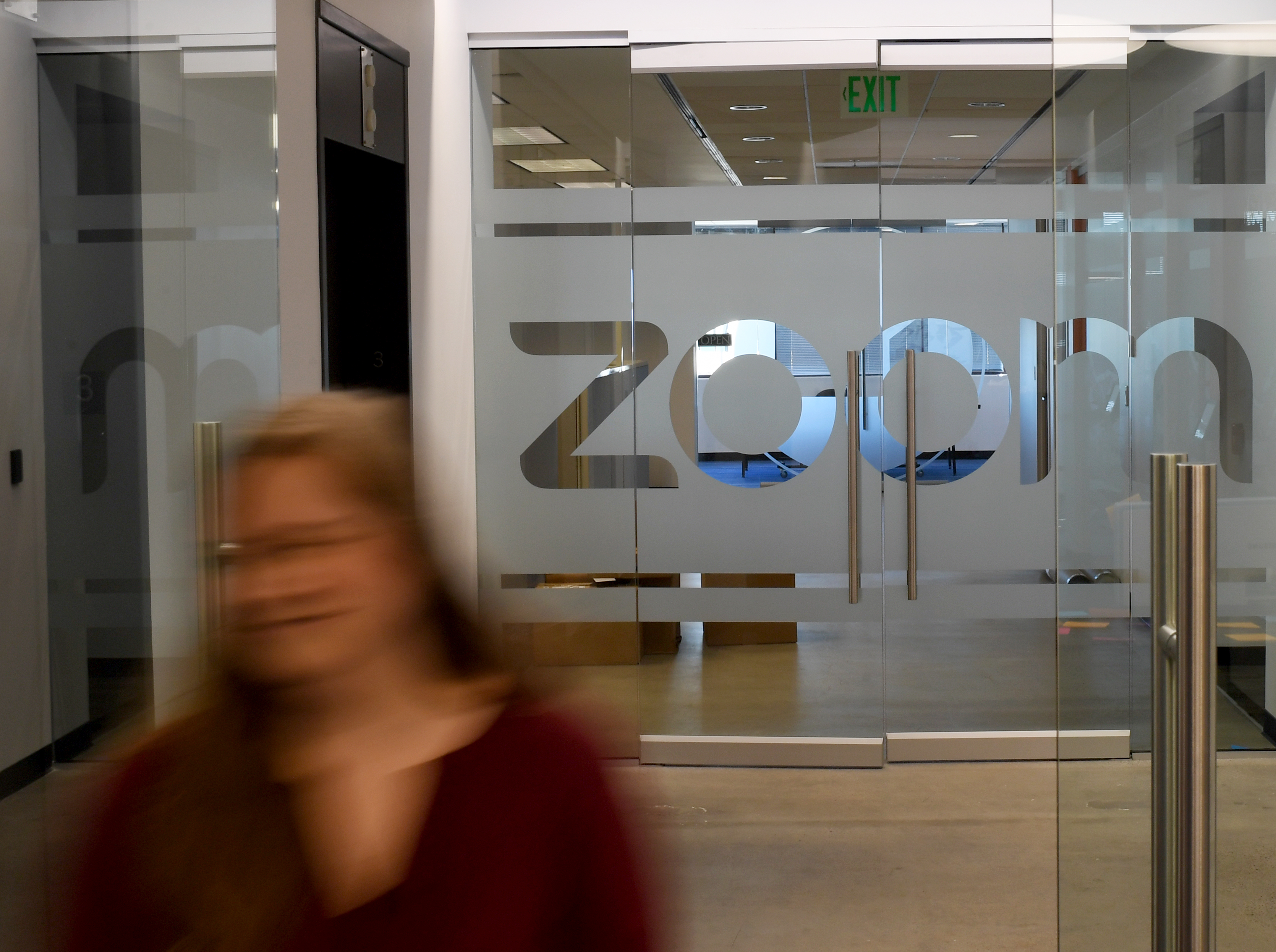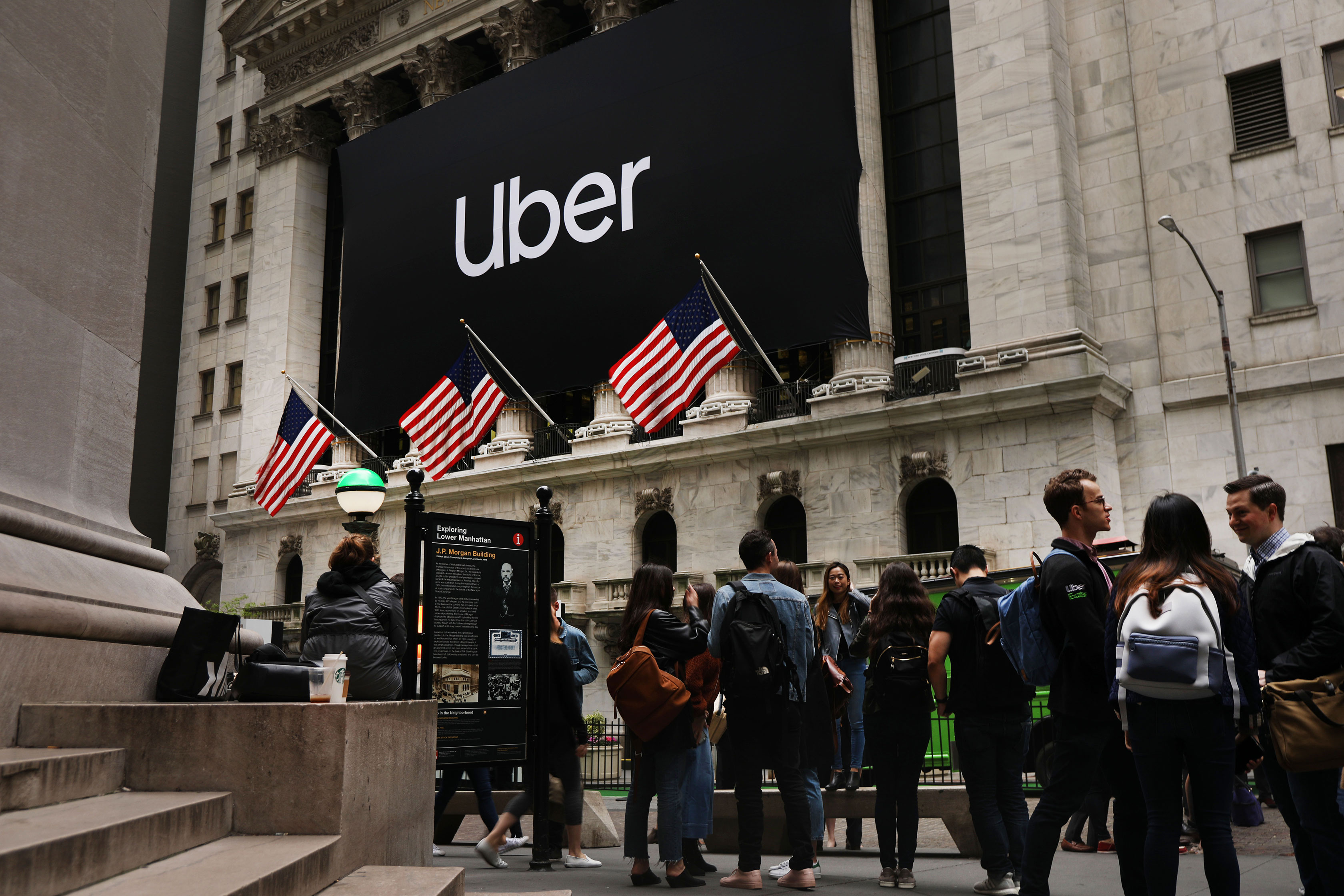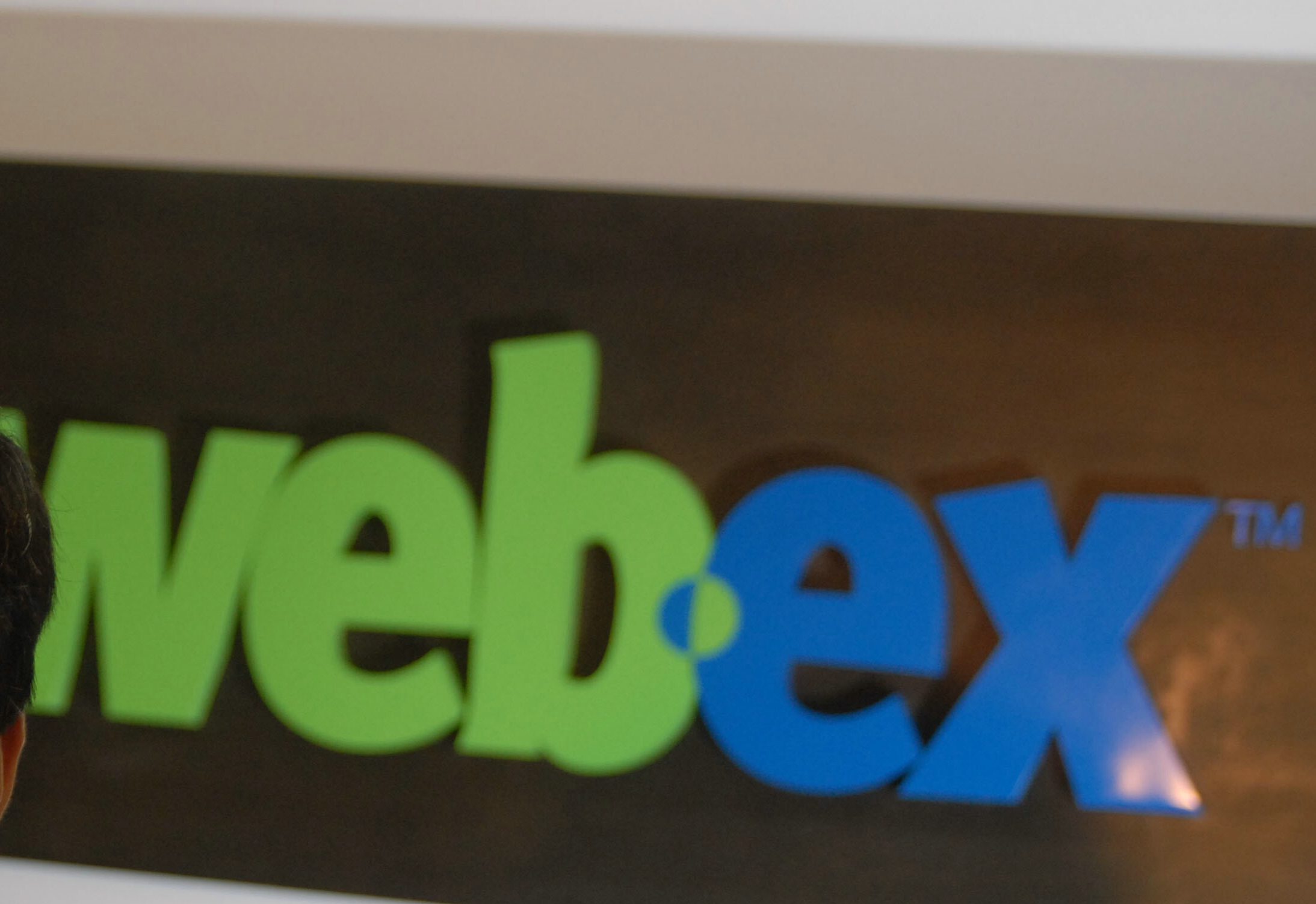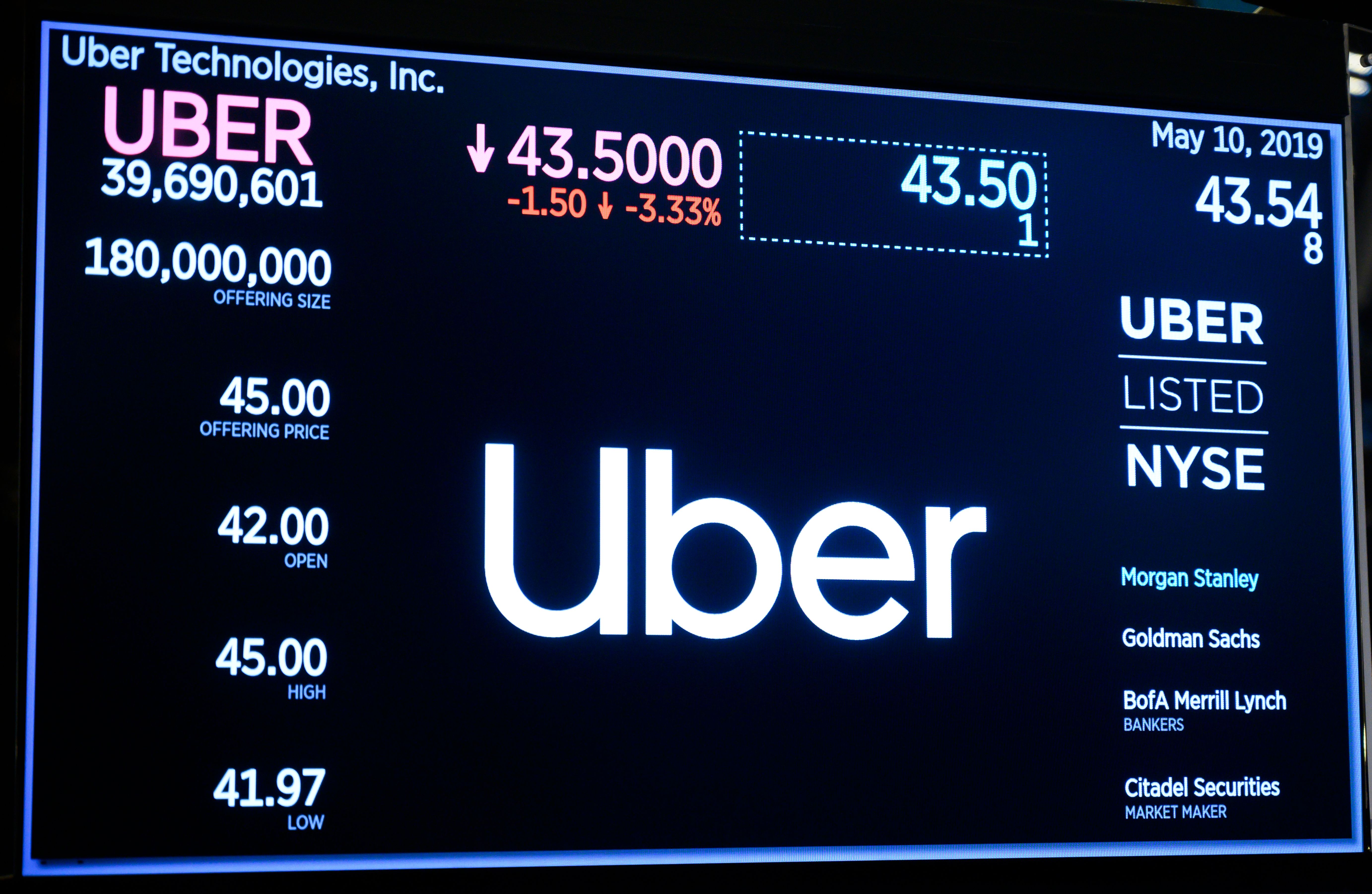Extra Crunch offers members the opportunity to tune into conference calls led and moderated by the TechCrunch writers you read every day. This week, TechCrunch’s Kate Clark sat down with Eric Yuan, the founder and CEO of video communications startup Zoom, to go behind the curtain on the company’s recent IPO process and its path to the public markets.
Since hitting the trading desks just a few weeks ago, Zoom stock is up over 30%. But the Zoom’s path to becoming a Silicon Valley and Wall Street darling was anything but easy. Eric tells Kate how the company’s early focus on profitability, which is now helping drive the stock’s strong performance out of the gate, actually made it difficult to get VC money early on, and the company’s consistent focus on user experience led to organic growth across different customer bases.
Eric: I experienced the year 2000 dot com crash and the 2008 financial crisis, and it almost wiped out the company. I only got seed money from my friends, and also one or two VCs like AME Cloud Ventures and Qualcomm Ventures.
nd all other institutional VCs had no interest to invest in us. I was very paranoid and always thought “wow, we are not going to survive next week because we cannot raise the capital. And on the way, I thought we have to look into our own destiny. We wanted to be cash flow positive. We wanted to be profitable.
nd so by doing that, people thought I wasn’t as wise, because we’d probably be sacrificing growth, right? And a lot of other companies, they did very well and were not profitable because they focused on growth. And in the future they could be very, very profitable.

Eric and Kate also dive deeper into Zoom’s founding and Eric’s initial decision to leave WebEx to work on a better video communication solution. Eric also offers his take on what the future of video conferencing may look like in the next five to 10 years and gives advice to founders looking to build the next great company.
For access to the full transcription and the call audio, and for the opportunity to participate in future conference calls, become a member of Extra Crunch. Learn more and try it for free.
Kate Clark: Well thanks for joining us Eric.
Eric Yuan: No problem, no problem.
Kate: Super excited to chat about Zoom’s historic IPO. Before we jump into questions, I’m just going to review some of the key events leading up to the IPO, just to give some context to any of the listeners on the call.
So about two months ago, Zoom, your video conferencing business, filed to go public, or at least releases the IPO documents for the public. That was the first time that everyone in Silicon Valley and beyond had the opportunity to get a closer look at the Zoom financials.
And that’s kind of when everything blew up for Zoom, at least considering it was a relatively under the radar company, as much as a unicorn business can be under the radar.
So shortly after that, Zoom set an IPO price range of $28 to $32 per share, only to quickly increase that to $33 to $35 per share ahead of its IPO. And then finally, Zoom priced its IPO at $36 a share, above both ranges, which gave Zoom an initial market cap of roughly $9 billion, or nine times its most recent private market valuation of about $1 billion.
So there was a lot of demand for this IPO. I think there are a lot of reasons why. One is that Zoom was and is profitable, which is unfortunately something we just don’t see in Silicon Valley with these tech companies, it’s just very rare. So I think a lot of people were really, really excited about that.
So today Zoom is trading at double its IPO price, at about $75 per share last time I looked. That gives it a market cap of around $19 billion. And just for context, though these are not comparable businesses, Lyft’s market cap is around $15 billion. Zoom raised about $115 million in venture capital before going public and Lyft raised about $5 billion.
So it kind of tells you a little bit about Wall Street’s appetite for these companies and it just shows you how historical and amazing Zoom’s IPO was.
So let’s get started with some questions, Eric.
You’ve become sort of a celebrity in recent weeks. I think every dinner party, every happy hour that I’ve gone to with techies, you’ve come up as sort of this public company figurehead or tech company CEO that people really look up to. So I’m just curious how these last few weeks and months have felt for you?

Image via Getty Images / RJ Sangosti
Eric: Yes, first of all, I do not think that I’m a celebrity. I think IPO is just a milestone, and it’s just like a high school graduation ceremony. And I’m going to be back from New York, I think that everything’s back to normal, and we still spend all our time talking with our customers and on product and with employees. I think very little has changed so everything is the same as before, except sometimes our employees, myself included, for the first two weeks, we did look at the stock price. But after the two weeks, we didn’t even look at the stock price anymore. I think outside of that, I think very little had changed.
Kate: So when I saw you last week at that event for Box, I remember you said that you were more closely watching PagerDuty stock. Are you still watching PagerDuty stock more closely than your own stock?
Eric: I do because we are actually a very happy customer of PagerDuty. Jennifer, she’s a wonderful, wonderful leader and a CEO. She and I are very good friends. Even before we became a public company, PagerDuty was a public company first. She’s also shared some experience and tips with me. I really like her and PagerDuty. I’m also a happy shareholder of PagerDuty.
Kate: So in the Forbes story that came out about you, they said that you’d only taken eight work trips in five years. So have you chosen to do that just so that your investors and your customers and anyone else knows how loyal you are to using Zoom as a product? Why have you decided to pretty much eliminate travel from your life?
Eric: Five years ago, I think after our service was ready, I had told myself, “If I traveled very often, maybe something is wrong. Maybe Zoom’s product does not work.” So I wanted to have a test. And that’s why I told myself and our team members that I will only do business travel at most twice a year. And it did work very well, and over the past five years, I’ve only traveled nine times.
And every time, when I talked with a very important customer, I did mention, “Hey I’m not going to travel there. Let’s have a video call first. How about a Zoom meeting?” Everyone told me that, “Eric, you do not need to come here anymore.” And I truly believe video conferencing like Zoom can really save you travel, where you can get a job done. and you do not need to get it together physically every time. I think we already proved it works.
Kate: So as I mentioned, Zoom is a profitable business. It posted revenues of $330 million in the year ending January 31st, 2019. And it’s seen strong growth year over year. Were you surprised at the response to Zoom sharing their financials, being profitable and this uproar that occurred after that? Just shock across the tech community?
Eric: That’s a good question. I think yes and no, because we are just focused on our product experience and doing all we can to make our customers happy. But in terms of financial metrics, because we’ve looked at that for several years, from our perspective, nothing’s a surprise. However, maybe actually that we are profitable, maybe that was a little bit of surprise to people, but overall I would say I did not see a big surprise.
Kate: So in Silicon Valley and the tech community, it is very acceptable to not be profitable for a very long time, and of course, Lyft and Uber, just as big examples, they’re not profitable and they’re not very close to profitability. What do you think of that culture that is so accepting of hyper-growth at all costs and pushing profitability for more than a decade?
Eric: That’s a wonderful question. I think everyone is different because look at Zoom. And I experienced the year 2000 dot com crash, and the 2008 financial crisis, and it wiped out the company, and I only got the seed money from my friends, and also one or two VCs like AME Cloud Ventures and Qualcomm Ventures.
And all other institutional VCs, had no interest to invest in us. I was very paranoid and always thought about wow, maybe next week we are not going to survive because we cannot raise the capital. And on the way, I thought we have to look into our own destiny. We wanted to be cash flow positive. We wanted to be profitable.
And so by doing that, people thought I wasn’t as wise, because we’d probably be sacrificing growth, right? And a lot of other companies, they did very well and were not profitable because they focused on growth. And in the future they could be very, very profitable. Take Uber for example. I’m pretty sure they will be very profitable in the future. I think a difference is, I just had differences in the growth strategy. So I’m not sure being profitable is right or not actually. Just happened to be in Zoom’s case, because I’m so paranoid. I didn’t even know if we could raise capital or not several years ago to survive. So that’s the reason why and we are very conservative.

Image via Spencer Platt/Getty Images
Kate: So Zoom had a harder time in the beginning, raising venture capital?
Eric: Oh that was very hard and everybody we saw as well, told me that this market is extremely crowded, and there’s no need for another service or another company. And that’s why I only raised the capital from all of my friends. And that’s it, and nobody wanted to invest. So it was very hard.
Kate: Well I’m sure the people that did invest are probably very happy with the outcome. Do you have any tips for founders of companies, whether it’s in this space or not, that are trying to actually create profitable businesses? What advice do you have for them?
Eric: That’s a great question. You’ve got to take a step back to really understand what is the problem you are trying to fix? Ideally you know that problem very well and you’re also talking with customers you know that also suffer from similar problems.
And plus you know you can build something better than others, right? Even for the public, they may not understand the problem well but you know that a problem exists? And plus, you know how to build something better than any of the other competitors, then just do it. And create value for the community, create value for others, and ultimately you will be okay. The key is value. What you can do to create value for others, for society, for the community, making your customers and your users happy. I think that will make it very likely you will survive very well.
Kate: So Zoom was founded in 2011. In 2019 of course, you’ve completed your IPO. At what point did you decide that you needed to go public in order to take the next step as a company?
Eric: So yeah, we talked about that early last year and a lot this summer too, with starting the process, because several years ago we expanded into the public sector, and a lot of enterprise, financial institutions. And quite often, those enterprise customers would like us to disclose more data around the financial metrics.
And as a private company, it’s a little bit harder for us to disclose that information. So that’s why the overall, the sales cycle is relatively slower. And so we decided, “hey why not become a public company and make everything transparent?” And plus, I think that we were also ready. So that’s the reason why we wanted to go public, to promote our company brand and to help our enterprise sales cycle.
Kate: And have you already seen growth as far as new customers, just in the small amount of time since you’ve gone public?
Eric: Not yet, but actually the trend is very positive and many of our existing customers, that for sure have really helped us over the past several years, they really enjoyed in this big milestone with us together. And so overall that’s in the right direction.

Image via Getty Images / Virojt Changyencham
Kate: I want to talk a little bit about the IPO pricing process. No one really gets much of a behind-the-curtain look at how that works. And I’m curious, were you very worried that the IPO was going to be overpriced or underpriced? And how were you feeling just in that short period where you were trying to pick the correct price?
Eric: So the good news, I’m not worried about the price at all, because I know actually when it comes to price, it is out of our control. Anything that is out of our control, I don’t want to spend time on that. And that’s why when it comes to the stock price, I’m not an expert and it’s also out of our control, right? And whatever price the market actually decides, I’m okay with that.
So for sure, the first day was a little bit of surprise, but it was a happy surprise. Again, we really do not look at a stock price because it’s really out of our control. The thing we choose to focus on is to make sure we have innovation, make sure all the existing customers are happy and around getting new customers. Then I think a solid price will follow. But in terms of today’s price, or the short term price, it’s really out of anyone’s control.
Kate: So when Zoom did go public on the NASDAQ, there was an 81% IPO pop, which is huge. So I remember watching you interview with Emily Chang of Bloomberg and you said that you said you thought Zoom stock was actually trading too high. Why did you say that at that time?
Eric: It was a happy surprise and you know the day before the greatest bankers like Morgan Stanley, JP Morgan, Credit Suisse, they were all working together with our management team and working together with investors to finalize a price. And then suddenly 24 hours later it’s a different price, before there was the surprise. But again, I just did not pay attention to that after we finalized the price the day before, because again it’s out of our control. I told our team, “Hey, let’s not look at the price. We’re okay with whatever price.” And so it goes up and down and it’s okay.
Kate: Yeah so as I mentioned, you debuted at $65 a share, up 81% from the $36 that you’d priced at the night before, and then today you’re at around $75 per share. So I remember I talked to you maybe a couple months or couple weeks before you actually filed publicly, and I remember you saying that there was just no chance in hell that Zoom would be acquired as opposed to going public. So can you tell us why you were so opposed to the idea of selling to another company?
Eric: Great question. So our employees, myself included, really enjoy working together. Every day, we’re very happy to come to the office and care about each other. To work to better something, we all feel proud. To make sure our existing customers are happy, and on getting new customers. We enjoy that, right?
And quite often our employees ask about, “Hey, what if somebody wanted to acquire us?” My answer is always, “Hey, this is our company. If we all enjoy working here, let’s continue our own destiny. Let’s keep doing that, keep growing our business, keep enjoying that. I think there’s no reason for us to sell the company.”
And also, our customers, our board members, our partners, they’re all very supportive, and I think we’re just starting. I see a huge opportunity ahead of us and we enjoy being an independent company.
Kate: So let’s take a step back and discuss Zoom’s origin story a bit. You were an early engineer turned founder at WebEx which sold to Cisco, and you were vice president of engineering before you left. So what was wrong with WebEx, which was a somewhat similar tool to Zoom? What was wrong with it that made you decide to jump off and start something on your own?

Image via Getty Images / Gireesh Gv / The India Today Group
Eric: Yeah so first of all, I’d like to clarify one thing. I do not think Zoom is similar to WebEx. And my analogy is more like hey, we look at the cars and before I have a Tesla, I drive a Lexus. Both of them are great cars from the auto perspective, but after you start a driving test, you would know that that’s not a car, that’s a moving computer.
The experience is totally different. The engine is very different, the architecture is totally different. After I drive a Tesla, I never want to go back to driving my old Lexus anymore, right?
Eric: Zoom and Webex are similar and there’s also some very consistent feedback from our customers. After they try Zoom, they say never want to go back to WebEx anymore. So before I left Cisco WebEx back in the 2010 or 2011 timeframe, every time when I talked with a Webex customer, I did not see a single happy customer.
They complained about the use of database, that it was very hard to use, about reliability and security, that it was not good for video. The reason for that is very straightforward because when we built WebEx in 1997, the architecture was about a data collaboration. It’s about how to share your deck of powerpoints and you and I can have an audio conferencing call.
But 14 years later, customers really wanted to have a brand new video collaboration solution, for conference room assistance, for mobile, for global attendees, one that was very easy to use.
So you have to build a new solution from the ground up, and Cisco wasn’t meaning to change its collaboration strategy. So I did not see a single happy customer and I finally decided to leave to build a new solution from the ground up and to bring happiness back to the customers.
Kate: So you did that in 2011, and then how long did it take you to actually get the support of some venture capitalists?
Eric: After the series A round. I think almost three years, maybe less than that, between two and a half and three years. Around two and a half years, yeah.
Kate: So let me review some of your funding history. Most recently Zoom raised a $115 million round in January 2017. And that was the round that valued Zoom at $1 billion or that gave it a unicorn valuation.
And as I mentioned earlier, you went public at around a $9 billion initial market cap, so huge, huge, huge increase at the IPO. So I’ve heard from some in the Silicon Valley community that they thought Zoom was just wildly undervalued at that $1 billion valuation in 2017. Would you agree with that?
Eric: I disagree. I do not think that it was undervalued, especially when it comes to valuation, you cannot look back. But otherwise in 2011, back then our valuation was just $15 million. So it’s hard to say. You cannot look back, right? I think back then, I think the valuation was very reasonable and another example is like Salesforce. This is a great company. When they went public I think maybe 15 years ago, it was just a little bit over $1 billion. Today it’s over $100 billion. I think you cannot say that the valuation was undervalued back then. So every climb, every phase of the company’s growth is different and you really cannot look back, so just move forward.

Image via Getty Images / Classen Rafael / EyeEm
Kate: So you mentioned some of Zoom’s investors earlier, but additionally Zoom was or is backed by Emergence Capital, AME Cloud Ventures, Horizon Ventures and more. Can you describe what your relationship was like with your VCs and how helpful they were to Zoom’s success?
Eric: Yeah, those VCs like Emergence Capital, Sequoia, AME Cloud Ventures, Horizon Ventures as well, they are all very, very helpful. Not only from a capital side but the most important value. They helped to open the doors to other very successful companies that we can learn from. And plus they also connected me with other very successful entrepreneurs, leaders, mentors I can personally learn from as well.
And also sometimes they connected us with some customers. From that perspective, I think they were extremely helpful. Also along the way, I became great friends with all those investors as well. I think looking back it was the best decision that we partnered with them. And we feel very proud, very fortunate to partner with the best VC and the best friends, and it really helped us to get to where we are now today.
Kate: And now that you’re a public company, have those relationships changed at all? How have they changed?
Eric: No, the relationship is getting even better. So we all flew to New York for the celebration. And our hard work paid off very well with this milestone. I think a big milestone, further cemented by our relationship and partnership, and the fact we really enjoy being partners — even after we became a public company, I think in the next several years, I think we are still going to be great partners. It’s been a great experience.
Kate: So going back to the IPO preparation, what was the hardest part about taking Zoom all the way to the public markets?
Eric: Well I think that the key part is how to balance your daily execution with this new process. And on the one hand, we have to focus on the product, the customer, and the execution. On the other hand, this is a brand new process, right? And quite often we’re going to have this meeting and that meeting to learn something new, to make sure everything’s ready. I think knowing how to balance that.
We don’t want to get distracted and focus on just the IPO, because it’s just a milestone. And our other challenge is, earlier this year, the government shut down. And again, that was out of our control and we crossed our fingers to make sure the government would resume very, very soon, because otherwise the train may have already left the station and we were very worried about that at that time.

Image via Getty Images / Gary Kemp Photography
Kate: And did the government shutdown delay your IPO at all?
Eric: Yeah, to some extent a little bit, but not that much.
Kate: So from filing the first bit of paperwork for the IPO to the actual IPO, how long was that process?
Eric: I think around five months because I think it was early-December to April. That’s good news that it was only five months, otherwise, if it was more than that it would be a huge distraction.
Caller Question: So far, amazing user experience has been a major driver of growth for Zoom. Beyond user experience, what other areas do you see as important for sustaining this growth at the enterprise level?
Eric: That’s a wonderful question. So the user experience is just one part of our overall goal. Our goal is to build trust with our customers. So user experience is one area. Another one is about the innovation. You’ve got to focus on innovation, keep adding more value to our customers and build the best product at the lowest price, keep building the trust with our customers. I think by doing that, as you introduce more and more services or features fast and it’s in the same price range and the product is very easy to use, I think the customers will trust you. Then I think everything else will follow.
Caller Question: Congratulations on the IPO. I wanted to ask, as you were growing, how did you know to cater more to the enterprise customers versus focusing on small and medium businesses instead?
Eric: I think that’s a great question. It seems more like it’s based on the customer feedback from several years ago, like six years ago, when we first introduced our service and we were more of a startup company with no brand, when nobody knew about Zoom. I think ideally you start with SMB customers, and that’s why our first three customers were all from the high end, because they were looking for solutions, and they do not really care about your company as a brand as long as you have a much better solution.
But along the way, and of course we’ve had so many SMB customers for sure. They also use Zoom with other big enterprise customers every time. Those big enterprise customers, after they had done a Zoom meeting, their experience sort of forced them to try Zoom as well, because the experience was much better than their existing solutions. And that’s why we had many incoming leads, or phone calls or emails from big enterprise customers. They wanted to test Zoom, they wanted to try Zoom. That’s how we started.
And then we got some big Fortune 100 companies we knew already from the product side. That’s why we established our enterprise team, almost three years ago. And every day, you have so many large enterprise customers coming to Zoom platform, and that’s why we say, “Hey, we are very ready now. And how do we further help our enterprise strategy?” And that’s the reason why we wanted to become a public company.
Caller Question: Can you tell me more about what you see the future of the video conferencing business becoming in five years? And if possible, where you would see yourself situated within that?

Image via Getty Images / Donald Iain Smith
Eric: Well, I think from a high level, we truly believe video is the future of communication and video is the new voice. Our vision is to own a video collaborating experience like Zoom, and really deliver a much better experience than face to face meetings. And all the features, I think will be added into video collaboration offerings like Zoom in the next five to 10 years. You know like today, I have a customer that told us they really like the Zoom experience, it’s very easy to use and the quality is great. However, it still cannot compare with face to face meeting. I cannot give you a hug. I cannot shake hands with you, right?
Those features also will be added into future video offerings, leveraging features like AR technology and internet sensor technology and 3D. And I think those cool features will be added into the future video offering and also artificial intelligence as well. Like if you and I are in the meeting and somebody else missed the meeting, we can automatically generate the meeting summary. And I think all those cool things will make sure the video collaboration experience is better and better in the future.
Kate: I do want to ask you a little bit about the Uber IPO. Why do you think that the Uber IPO has performed so much differently than I’m sure Uber expected, and really I think then all of us have expected?
Eric: I think first of all, Uber is a great company, and also Uber has been a customer for many years. I really respect the Uber team. The CEO Dara and the CFO Nelson, they are great leaders. I have very, very, very high confidence about Uber and think they are going to do very well. But with the stock price, it just became a public company last week. Again the stock price, it’s out of anyone’s control. And it could be up and down, but in the long run, I think they will do extremely well.
Like even yesterday my son, he called an Uber service and it helped me a lot because otherwise I needed to give my son a ride. That’s why I think Uber’s service has added huge value to the community and society. But I do not look at the short term price, and in the long run it will do very well. Look at Facebook. It’s a wonderful company, with more than $500 billion marketing cap. When they went public, for the first several months, their stock price was down as well. I think this is a short term thing.
Kate: So in 2019 already, we’ve seen so many high profile IPOs, from yours to PagerDuty, to Uber, to Lyft, to Pinterest. Why is it that all these big tech companies decided to go public basically within the same six week period?
Eric: Yeah good question. I have a similar question as well to be honest. I think that from our perspective, it’s maybe just a coincidence and maybe 2019 is a good year. And also all those companies are ready. I do not know the exact reason, but from our perspective, I think it’s probably just a coincidence.
Kate: If Zoom hadn’t yet gone public and wasn’t in the process of it, would the Uber IPO have worried you at all?
Eric: No, not at all. I’ve always had high confidence about Uber. I think that no matter what the price is today, it will not change my opinion about Uber. I’m very optimistic about the future of Uber. They will do very well.

JOHANNES EISELE/AFP/Getty Images
Kate: So as we talked about earlier, you’ve kept an eye on PagerDuty. Are there any other stocks that you keep a close eye on?
Eric: Well the reason why I look at those companies, first of all I like them, right? I think there are so many great companies like Okta, PagerDuty, Starbucks, Zscaler, and Twilio, Salesforce, Workday, ServiceNow. All of those are great companies, because they all set up a role model for us. And also all of them are our customers, and I also learn a lot from their businesses and learn a lot from those CEOs as well. That’s why I keep an eye on that, to try to learn more from them.
Kate: So what have you learned from this whole IPO process?
Eric: I think one thing I learned is that hard work will pay off very well eventually? All Zoom employees did hard work over the past several years and their family members have been the greatest support. I just really appreciate their hard work. Plus, when you’re over there and open up the bidding in the NASDAQ, you feel like your dream is coming true after many, many years of hard work.
Kate: I know you guys are reporting earnings fairly soon, but is there anything you can share about what’s next for Zoom now that it’s a public company?
Eric: I think it still goes back to execution. So every day for me as a CEO, it’s the same thing. Every day I have to think about how to make sure Zoom employees are happy. And together we do all we can to make sure our customers are happy. I think that’s our focus, that’s our priority.
Kate: Do you think you’ll ever build another company?
Eric: I don’t think so. I still enjoy working at Zoom and working together with all the Zoom employees. And as I mentioned, to be a public company, it’s more like a high school graduation ceremony. And we are in college now, but we are the freshman students in the public company campus. It’s hard for us to go back to high school.
Kate: So like I said in the beginning of this call, you have become kind of a celebrity around here it seems. And I think that’s because people see you as different from the average tech CEO. You’re very grounded and you’re very modest. I’m curious, do you think that you’re different? Do you think you have different qualities than the average head of a big tech company?
Eric: I do not think so because I talk with many other peer CEOs and I also have many mentors. They all are very, very humble, and all work very, very hard. That’s what I learned from other successful entrepreneurs and leaders here in the Valley, and I’ve learned a lot from them. And I really think a lot of great companies, their CEOs and leaders are all very humble. They all work very, very hard.
Caller Question: Eric, I love the product, I love the company. I’d like to hear your thoughts on how important intellectual property protection is for a technology company like this, and whether Zoom invests in patents and trademarks and things like that.
Eric: Yeah Michael, thank you for being a Zoom customer. I really appreciate it, and I want to give you a hug, and I’m sorry we do not have this feature yet. I think IP is very, very important, but especially to build a company like Zoom. The brand and IP is very, very important, because otherwise you might see a competitor from another part of the world, and you never know who’s going to compete against you. That’s why we take IP very, very seriously. And here in San Jose we have a team to make sure we really protect our IP. It’s very important, it’s very critical to our success.
Kate: All right, we’ll wrap up now. Thanks again Eric. It was a great conversation, and I hope you have a good rest of your week.
Eric: My pleasure, thank you so much for your time. Thank you.
